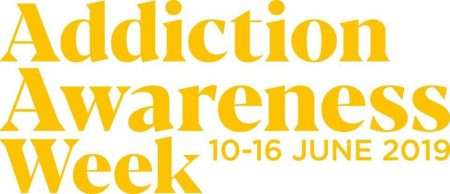Addiction doesn’t discriminate by age, yet many people struggle to recognise substance misuse in older adults. Perhaps it’s a beloved grandmother who enjoys her evening wine, or a grandfather managing multiple prescription medications for chronic conditions. These scenarios may seem commonplace, but they can mask a serious underlying issue that requires professional attention.
The reality is that substance misuse and addiction among elderly individuals is increasing significantly, representing a healthcare challenge that families and medical professionals must address with both urgency and compassion.
Rehab Costs & Options for alcohol or drug rehab for the elderly.
Understanding the Nature of Addiction in Later Life
According to a report in the British Medical Journal, substance misuse among older adults is experiencing unprecedented growth across the UK and internationally. The statistics paint a striking picture: over the past twenty years, the number of people over 50 receiving drug treatment has increased seven-fold, while those receiving alcohol treatment have risen four-fold. By 2024, nearly 90,000 individuals over 50 received drug or alcohol treatment, with more than a quarter aged over 60.
Recent data reveals a concerning trend in healthcare settings, with hospital admissions related to drug misuse in elderly patients increasing substantially over the past decade. This growing crisis extends beyond hospitals into residential care, where 1,756 care homes for older people in England alone reported caring for at least one person with substance dependence during 2022/23. New research led by the University of Bedfordshire, in partnership with the Care Quality Commission (CQC), is now exploring how people with drug and alcohol dependence are supported in these care home environments.
Addiction in elderly populations presents distinct characteristics compared to younger demographics. While illegal substances such as heroin affect approximately 5% of older adults – significantly lower than younger age groups – the primary concerns centre on alcohol dependency and prescription medication misuse. Many individuals with substance dependencies require long-term or permanent care in residential facilities, often at a relatively young age due to the physical toll of heavy drug and alcohol use. Others may need shorter-term care following detoxification or hospital treatment for related illnesses.
This shift in addiction patterns requires specialised understanding and treatment approaches tailored to the unique needs, medical complexities, and life circumstances of older adults seeking recovery.
The Complex Challenges of Substance Misuse in Later Life
Spotting and treating substance problems in older adults can be very difficult. From the first signs through to getting help, older people face particular challenges that can make recovery harder.
Why Substance Problems Are Hard to Spot
One of the biggest problems is that the signs of addiction often look very similar to normal ageing. Memory problems, mood changes, tiredness, and being unsteady on your feet are all things people expect as they get older. This means that families and even doctors might miss the real cause of these symptoms. As a result, many older people with substance problems don’t get the help they need for months or even years.
Personal and Social Barriers
Retirement can bring major life changes that make people more likely to develop substance problems. Being alone more often, worrying about money, and feeling uncomfortable asking for help can all make it harder to get treatment. Many older people find it especially difficult to admit they have a problem with alcohol or medication, or to work their way through complicated healthcare systems to get support.
Hidden Problems with Prescription Medicines
As people age, they may not notice when they’re becoming dependent on medications, especially when a doctor has prescribed them. People who have been taking medication for a long time may become what experts call “functional users.” This means they can still manage their daily life while hiding their dependency from themselves and their families. Because they seem to be coping well, it can take much longer for anyone to realise there’s a problem.
Why Older Bodies React Differently
As we age, our bodies process alcohol and medicines much more slowly. This means substances stay active in older people’s bodies for much longer. Where someone might have needed two drinks to feel the effects when they were younger, they now might only need one. Similarly, a normal dose of medication might stay in their system twice as long. These changes in the body mean older adults are much more likely to accidentally take too much, which can be dangerous. This is why professional medical support is so important for safe treatment and recovery.
Alcohol Misuse in the Elderly
Alcohol: The Most Common Problem
Alcohol remains the most widespread substance that people become dependent on. It’s easily available and widely accepted socially. Most older people who develop drinking problems aren’t new to alcohol – they may have been drinking for years. However, alcohol affects older bodies much more strongly than younger ones. It also doesn’t mix well with many prescription medicines, which can lead to dangerous and unexpected reactions.
Prescription Drug Misuse and Addiction in the Elderly
Benzodiazepines are often prescribed for anxiety and insomnia, two common issues in older people. Although beneficial in the right circumstances, they are one of the most dangerous and addictive drugs, even for young, healthy individuals.
Opiates can be given after surgery or prescribed if a person suffers from chronic pain. Also highly addictive, prescription painkillers can cause many issues if misused.
It can be very difficult to spot signs of prescription drug misuse, among elderly people.
Why Does Addiction Happen to the Elderly?
Why Do Older People Develop Addiction Problems?
There are many reasons why someone might develop problems with alcohol or drugs as they get older. Growing older brings big changes that can be much harder to handle than people expect.
The Challenge of Retirement
Retirement can come as a real shock, even when people have been looking forward to it. One day you’re busy with work, colleagues, and daily routines – the next day, all of that is gone. While many people dream of having free time, they often don’t realise just how much empty time they’ll actually have. This can lead to boredom and feeling lost without purpose.
Without regular activities, social contact, and mental stimulation, many people find themselves feeling low or depressed. Alcohol or drugs can seem like an easy way to fill the emptiness or numb difficult feelings.
Life’s Major Changes and Losses
Getting older often means facing some of life’s most difficult experiences. This might be losing a husband, wife, or close friend. It could be receiving a serious health diagnosis that changes everything. For some people, it means having to leave the home they’ve lived in for decades and move into a care facility or retirement community.
These experiences can be overwhelming, and it’s natural to look for ways to cope with the pain and stress.
Loneliness and Isolation
All of these changes can lead to deep loneliness. Adult children become busier with their own lives and families. Old friends may move away or pass away. Social circles get smaller, and it becomes harder to make new connections. When you’re feeling alone and cut off from others, alcohol or drugs might seem like the only comfort available.
Physical and Mental Health Problems
Getting older often means dealing with more health problems – both physical pain and conditions like depression or anxiety. These health issues cause real distress and can make daily life much harder. Unfortunately, some of the medicines prescribed to help with these problems – like strong painkillers or anxiety medications – are the very drugs that can become addictive. What starts as legitimate medical treatment can gradually develop into dependency.
Signs of Substance Misuse and Addiction in Older Adults
The signs of alcohol and drug problems in older people are often not obvious. Most older adults don’t develop addictions because they want to feel high – they’re usually trying to cope with pain, anxiety, or other difficulties. If someone has been taking medication for a long time, they may still be able to manage their daily routine, which makes the problem much harder to spot.
While each of these signs could have other explanations, they’re important to watch for if you’re concerned about someone’s relationship with alcohol or medication.
- Memory problems – forgetting conversations, appointments, or daily tasks more than usual
- Changes in daily routines – sleeping much more or less than normal, eating very little or at odd times
- More accidents or injuries – unexplained bruises, falls, or minor accidents around the house
- Mood swings – becoming unusually irritable, anxious, or sad without clear reasons
- Ongoing health complaints – persistent pain or medical issues that don’t seem to improve
- Poor judgment – making decisions that seem out of character or risky
- Withdrawing from others – avoiding family, friends, or social activities they used to enjoy
- Neglecting personal care – not washing, changing clothes, or taking care of appearance
- Losing interest in favourite activities – giving up hobbies, interests, or pastimes that were once important
- Physical difficulties – becoming less steady on their feet or having trouble with tasks requiring coordination
When to Be Concerned
If you notice several of these signs together, especially if they’ve appeared quite suddenly, it could be a warning that something is wrong. It’s always better to ask questions and offer help early rather than wait and hope things improve on their own. Trust your instincts – if something feels different about someone you care about, it’s worth having a gentle conversation about it.
Getting Help for Older Adults with Substance Problems
When you suspect or confirm that an older person has a problem with alcohol or drugs, it’s important they get the right kind of help. However, older adults often need more specialised care than younger people, which can make finding the right treatment more complex.
When Residential Treatment Is Needed
For serious problems, doctors will usually recommend staying at a residential addiction treatment facility. There are important reasons why this kind of intensive care is often necessary for older adults.
First, most residential rehab centres have medical staff available around the clock. This is especially important for older people who may have other health conditions that need monitoring alongside their addiction treatment.
Second, coming off alcohol, anxiety medications (benzodiazepines), or strong painkillers (opiates) can be dangerous – even life-threatening – without proper medical supervision. This is true for people of any age, but older adults face additional risks during withdrawal.
Choosing the Right Treatment Centre
Finding the right residential facility requires careful consideration. Look for a centre, like Castle Craig, that takes a complete approach to health – one that will treat not just the addiction, but also any mental health issues like depression or anxiety, as well as other medical conditions.
While it’s not always essential, it can be helpful to find a centre that specialises in treating older adults or at least offers treatment plans designed specifically for their needs. Older people face different challenges and may benefit from different approaches than younger patients. In some situations, programmes designed specifically for men or women can also be more effective.
Taking Concerns Seriously
If you have any doubts about whether changes you’re seeing in an older person are just “normal ageing,” it’s important to investigate thoroughly. Don’t dismiss your concerns too quickly. Addiction is a serious medical condition that shouldn’t be ignored or left untreated. As people get older, their bodies become less able to cope with the effects of alcohol and drugs, making early intervention even more critical for their health and safety.
References:
University of Bedfordshire. Academics launch new study into how people with drug or alcohol dependence can be supported in care homes. [Accessed September 2025]
Substance misuse in older people. BMJ 2017;358:j3885
Castle Craig Hospital has over 30 years of experience treating all types of addictions in all age groups. If you have questions about your options, don’t hesitate to give us a call. Without any obligation, our staff can give you advice about your situation. Feel free to reach out to us at 01721 546 263 from the UK, or +44 1721 788152 from overseas.


